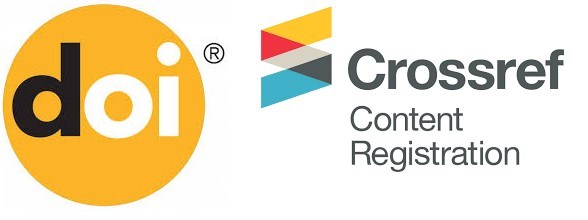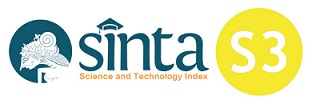Tathbiq Thariqah Ta’lim Maharah al-Kalam min Mandzur Ibn Khaldun
DOI:
https://doi.org/10.32699/liar.v7i1.4424Keywords:
Learning Method, Maharah Kalam, Ibn KhaldunAbstract
The purpose of this research is to describe the application of the Maharah Kalam learning method from the perspective of Ibn Khaldun. In this research, the researcher used a qualitative approach with descriptive analysis methods. Data collection is done by: a) observation method; b) interview method; c) documentation method. While data analysis techniques 1) data collection; 2) data reduction; 3) data displays; 4) conclusion. The results of the research show that the application of the maharah al-kalam learning method at IAIN Palangka Raya has several elements, namely starting from the basics and repeating the material at the beginning of each meeting from the point of view of Ibnu Khaldun. This is what is called the Takrir and Tadarruj method. In maharah al-kalam learning which is implemented by lecturers, discussion sessions are also held between students and lecturers who also participate, according to Ibnu Khaldun this is called the Munaazarah method. Apart from that, in maharah al-kalam learning there is also an opportunity for students to experience experiences with other teachers and different places, and this according to Ibn Khaldun is called the Rihlah method.
References
دراوشه, س. (2012). الفكر التربوي الخلدوني مقاربة بین الأصالة والمعاصرة. جامعة النجاح الوطنیة.
Agus, Z. (2020). Pendidkan Islam Dalam Perspektif Ibnu Khaldun. Raudhah Proud To Be Professionals : Jurnal Tarbiyah Islamiyah, 5(1), 101–115. https://doi.org/10.48094/raudhah.v5i1.60
Ainin, M. (2019). Metode Penelitian Peningkatan Kualitas Pembelajaran Bahasa Arab (Teori dan Praktik). Lisan Arabi.
AL Manaf. (2020). Pemikiran Ibnu Khaldun Tentang Pendidikan Dan Relevansinya Dengan Pendidikan Dunia. As-Salam: Jurnal Studi Hukum Islam & Pendidikan, 9(1), 1–16. https://doi.org/10.51226/assalam.v9i1.116
Azhari, A., Arifa, Z., & Rais, Q. M. N. (2021). Konsep Pembelajaran Perspektif Ibnu Khaldun dan Relevansinya pada Pembelajaran Bahasa Arab di Abad 2. STUDI ARAB, 12(02), 14. https://doi.org/10.35891/sa.v12i2.2854
Junedi, B., Mahuda, I., & Kusuma, J. W. (2020). Optimalisasi keterampilan pembelajaran abad 21 dalam proses pembelajaran pada Guru MTs Massaratul Mut’allimin Banten. Transformasi: Jurnal Pengabdian Masyarakat, 16(1), 63–72. https://doi.org/P
Khaldun, I. (2021). Muqaddimah (2 ed.). Wali Pustaka.
Miles, M. B., Huberman, M., & Saldaña, J. (2020). Qualitative data analysis: A methods sourcebook (Fourth edition). SAGE.
Nurhidayati, R. (2019). Penerapan Metode Langsung (Thariqoh Mubasyaroh) Pada Pembelajaran Bahasa Arab Dalam Meningkatkan Maharoh Kalam Kelas IX MTsN GRESIK. Arabia, 11(2), 121. https://doi.org/10.21043/arabia.v11i2.6057
Rahmah, E. N. (2019). Konsep Metode Pembelajaran Perspektif Ibnu Khaldȗn Serta Relevansinya Dengan Pendidikan Masa Kini. Alim | Journal of Islamic Education, 1(1), 91–118. https://doi.org/10.51275/alim.v1i1.121
Rejeki, K. S. (2020). Konsep Pendidik Dan Metode Pembelajaran Yang Humanis Menurut Ibnu Khaldun. Mozaic : Islam Nusantara, 6(1), 97–114. https://doi.org/10.47776/mozaic.v6i1.159
Rifa’i, A. (2015). Implementasi Thariqah Al Intiqaiyyah (Metode Eklektik) Pada Pembelajaran Bahasa Arab DI MTsN Kediri. Realita, 13(02), 11. https://doi.org/DOI: https://doi.org/10.30762/realita.v13i2.60
Robi’ah, F. (2022). Penerapan Pendidikan Islam Pada Peserta Didik Sejalan Dengan Pemikiran Ibnu Khaldun. Journal of Multiliteracies, 02(01), 8.
Saepudin, J. (2015). Model Pembelajaran dalam Perspektif Ibnu Khaldun: Resepsi Terhadap Kitab Muqaddimah. EDUKASI: Jurnal Penelitian Pendidikan Agama dan Keagamaan, 13(2). https://doi.org/10.32729/edukasi.v13i2.240
Sofian, M. (2019). Konsep Pendidikan Islam Dalam Perspektif Ibnu Khaldun Dan Relevansinya Terhadap UU SISDIKNAS NO. 20 TAHUN 2003. Tawazun: Jurnal Pendidikan Islam, 10(2), 311. https://doi.org/10.32832/tawazun.v10i2.1165
Sugiyono, S. (2017). Metode Penelitian Kuantitatif, Kualitatif, dan R&D. Alfabeta.
Yarun, A., & Khayati, N. A. (18). Relevansi Pendidikan Kritis Dengan Metode Pengajaran Ibnu Khaldun Pada Generasi Milenial. Al-Ghazali: Jurnal kajian pendidikan islam dan studi islam, 1(2), 25.
Downloads
Published
Issue
Section
License
Authors who publish with this journal agree to the following terms:
a. Authors retain copyright and grant the journal right of first publication with the work simultaneously licensed under a Creative Commons Attribution-ShareAlike 4.0 International License. that allows others to share the work with an acknowledgement of the work's authorship and initial publication in this journal.
b. Authors are able to enter into separate, additional contractual arrangements for the non-exclusive distribution of the journal's published version of the work (e.g., post it to an institutional repository or publish it in a book), with an acknowledgement of its initial publication in this journal.
c. Authors are permitted and encouraged to post their work online (e.g., in institutional repositories or on their website) prior to and during the submission process, as it can lead to productive exchanges, as well as earlier and greater citation of published work (See The Effect of Open Access).












